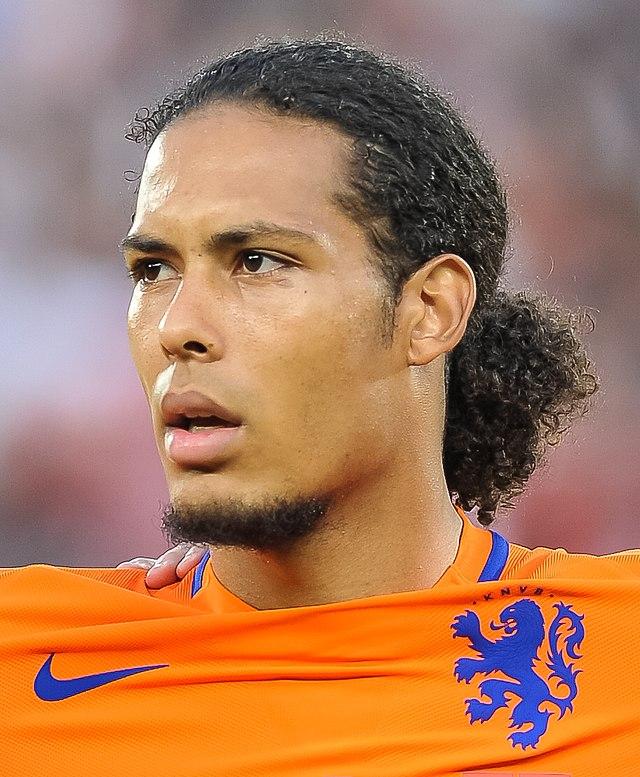Instant Access
No Waiting, Start Streaming Now
24/7 Support
Always Here to Help
Multi-Device
Watch on Any Screen
8K Quality
Crystal Clear Streaming


Instant Access
No Waiting, Start Streaming Now
24/7 Support
Always Here to Help
Multi-Device
Watch on Any Screen
8K Quality
Crystal Clear Streaming
In the electric atmosphere of a Merseyside derby, where passion and rivalry collide, moments of tension can often overshadow the beautiful game.This was the backdrop against which Virgil van Dijk made headlines recently, as he voiced his frustrations regarding the officiating in the fiercely contested clash between Liverpool and Everton. With tensions running high and emotions flaring on both sides, the Dutch defender’s remarks have sparked a dialog about the pivotal role of referees in critical matches. As we delve into Van Dijk’s perspective, we explore the broader implications of officiating standards in high-stakes encounters and what they mean for the integrity of football itself.
Virgil van Dijk,Liverpool’s captain,did not hold back in voicing his concerns over the officiating during the recent Merseyside derby. The Dutch defender expressed that the referee struggled to maintain authority as tensions escalated, leaving crucial moments unaddressed while dishing out inconsistent decisions. According to Van Dijk, what should have been a thrilling encounter between crosstown rivals turned into a chaotic affair, with challenges flying in and the flow of the game repeatedly disrupted. The lack of control, he implied, had a tangible impact on both teams’ ability to showcase their best football.
Among the contentious points Van Dijk highlighted were the referee’s handling of late tackles and persistent fouling. He questioned the selective enforcement of rules, citing moments where clear punishments were overlooked, fueling the aggression on the pitch. Key observations shared by him included:
To underscore his views, Van dijk referenced critical match stats, showcasing the imbalance in game management:
| Stat | Everton | Liverpool |
|---|---|---|
| Fouls Committed | 18 | 10 |
| Yellow Cards | 1 | 4 |
| Red Cards | 0 | 1 |
While Liverpool edged out a result Van Dijk’s comments suggest that oversight on such officiating lapses could diminish the true competitive spirit of matches such as this beloved derby.
Refereeing decisions have always been at the heart of contentious football debates, and few matches highlight their influence quite like the Merseyside derby. In heated encounters where emotions run high, the ability of the referee to maintain authority can substantially shape the rhythm and result of the game. A single questionable decision can tilt momentum, ignite tempers, or even alter the dynamics of a title race. On multiple occasions in Saturday’s clash, players and fans alike appeared visibly frustrated by inconsistent calls, leading to a buildup of tension on the pitch. This ultimately not only affected the flow of the game but also overshadowed the quality of football on display.
Key moments from the referee’s performance included missed fouls and delays in decisive calls, which Van Dijk himself pointed out in his post-match comments. Consider the following breakdown of critical decisions during the match:
| Incident | Outcome | Impact on Match |
|---|---|---|
| First-half penalty appeal | Dismissed by the referee | Frustration grew among players |
| Contentious red card | Given after VAR review | Left team with 10 players |
| Dubious offside call | Goal disallowed | Shifted momentum before half-time |
Key Takeaways:
– Consistency matters: In such high-stakes games,irregular decision-making can disrupt the match’s natural flow.
– Role of VAR: Despite technological assistance, questions over its application remain open to debate.
– Player reactions: Lack of clear guidance can amplify emotional responses, making control more challenging.
From Van Dijk’s perspective,lapses in control were evident and raised questions about the preparation and conduct of match officials in derbies of this magnitude.
Virgil van Dijk’s remarks following the Merseyside derby laid bare the frustration felt by Liverpool players and supporters alike.The dutch defender’s critique of the referee’s performance can be seen as a direct challenge to the standards of officiating in high-stakes matches. While his claim that the referee ”lost control” resonates with those who witnessed the heated encounters on the pitch, the validity of such assertions hinges on specific incidents during the game. As an example, the lack of consistency in bookings, prolonged arguments with players, and several contentious fouls that went unpunished left both sets of fans visibly agitated. These issues aren’t new to the Premier League spotlight but once again raise questions about officiating reliability.
| Player Incident | Referee Decision |
|---|---|
| Overzealous tackle by Everton midfielder | No booking |
| Dissent shown by Liverpool striker | Verbal warning |
| Handball appeal in Everton’s box | Play on |
Ultimately, while Van Dijk’s comments carry weight and reflect the emotions surrounding derbies of this magnitude, a balanced assessment must consider the complexities referees face in such chaotic encounters. However, persistent complaints about similar officiating issues over multiple seasons suggest a need for reform, whether through better training or improved VAR collaboration. The Merseyside derby might just be another example in an ongoing debate.
The fast-paced nature of Premier League derbies often pushes referees to their limits, making it crucial to adopt a proactive approach towards enhancing officiating standards.One effective solution could be integrating specialized referee training programs. These programs can simulate high-pressure derby scenarios, focusing on decision-making under stress and improving consistency in judgment. Additionally, leagues could implement mandatory post-match reviews where referees and officials assess their performances with advanced video analysis tools, creating opportunities for learning and accountability.
| Suggestion | Impact |
|---|---|
| Enhanced Training | Improved consistency in critical decisions |
| VAR Optimization | Fewer controversial calls |
| Transparent Communication | Builds trust with stakeholders |
In the aftermath of a thrilling Merseyside derby, Virgil van Dijk’s candid reflections remind us that amidst the ardent rivalries and passionate displays of football, the role of officiating is as vital as the players on the pitch.As tensions flared and pivotal decisions were scrutinized,the Dutch defender’s observations serve as a call to examine not only the beautiful game but also the intricate dynamics that govern it. While the excitement of such match-ups often overshadows the intricacies of refereeing, every player’s experience is shaped by the choices made a few feet away from the action.
as the dust settles on this latest chapter of the enduring Liverpool-Everton rivalry, the discourse surrounding officiating remains as critically important as the outcome itself. With van Dijk’s insights lingering in the minds of fans and analysts alike, one thing is clear: the path forward in football requires an unyielding commitment to clarity, consistency, and control—elements that can elevate a derby experience from the ordinary to the exceptional. As we look ahead to future encounters on these storied turf,a collective hope emerges for a game where everyone—players,officials,and supporters—can fully embrace the spirit of competition without the specter of controversy.
34,353
Live TV Channels
162,404
Movies
27,802
Series
284,023
Total Subscriptions
139,854
Users Online
142,887
Total Resellers

